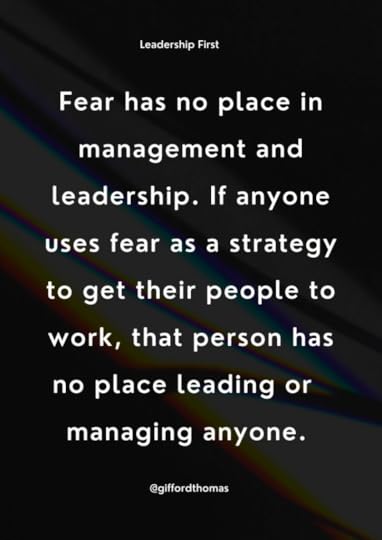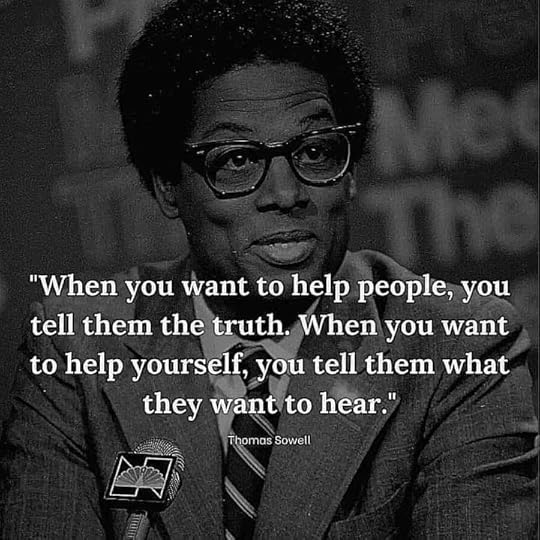Gordon Graham's Blog, page 2
October 2, 2023
Let’s Try This Again
I tried to post this earlier and, you may have noticed, there was an obvious issue!
Rather than concentrating on the fun stuff (dissecting the behaviors, characteristics and motivations of toxic leaders), this post is specifically to express gratitude for your support in my publishing and marketing adventure.
It has been a mixed bag of emotions since I published The Intrepid Brotherhood over two years ago. There was a flurry of activity after the initial release with reviews coming in fairly rapidly. I received many personal messages of support from former colleagues and friends, had several newspaper interviews, and began the process of learning how to conduct myself on podcast interviews (chuckle). Amazon print-on-demand orders were fairly robust initially and the posted reviews were generally full of praise, and very humbling.
Then the work began. My marketing company was very successful finding a series of podcast opportunities that, in my opinion, have progressively increased in quality and relevance. They, and I, embarked on a number of targeted marketing campaigns to attempt to identify that segment of the population to which my book would appeal to the most (my “audience”). We’ve had an Amazon Ads campaign going for about two years, which is really a keyword system that is meant to drive people to your book to see if it appeals to them. Then there is this blog, my bi-weekly catharsis of sorts. But, for some time now things have been just sort of percolating. I do a podcast or two, sell a few books, do my blogs ……. but there is nothing very different from one month to the next.
But August was different.
The numbers are still not huge, but my most recent marketing summary showed printed book sales almost five times greater than any previous month. The ebook promotion we ran for a week in early August produced sales ten times greater than the average. My LinkedIn profile views doubled. Five more book reviews were added on Amazon with the average reader rating remaining at 4.5 stars. I received two calls from contacts in the Wenatchee Valley providing me very positive feedback from conversations they had with current or former Chelan County PUD employees about my book. Lastly, the host of one of my most recent podcasts has contacted me since our initial interview to drill down further into the “toxic leader profile” subject to help him solve problems for current clients. He has suggested that I might be asked to participate in virtual “Salon Room” discussions that he hosts on management topics. The downside to all of this, if there is one, is that I don’t know what the catalyst was for all of this activity. Obviously, my next job is to find out so that I can try to keep the momentum going.
Most importantly, thank you if you purchased my book, especially if you have written a review. Thank you to everyone who reads these blog posts and takes the opportunity to discuss the content with friends, colleagues, family members …… anybody. Thank you if you take the time to listen to or watch the podcasts that I have participated in.
And thanks for “not forgetting”, because as soon as you forget the past it has a nasty habit of repeating itself.
Stay Courageous,
Gordon
September 18, 2023
The Size of The Elephant
Many people encounter toxic leadership in their careers but end up suffering through it in silence.
The prevalence of toxic leadership in organizations across the world is the subject of much debate. There is plenty of data to support the contention the as many as 1 in 3 leaders today possess the three characteristics of “The Dark Triad”, Machiavellian-ism, narcissism and psychopathy. However, most social scientists and authors who have studied the subject agree that it is likely around 15% of contemporary CEOs are toxic. Still, that means you and I have almost a 1 in 7 chance of being employed in an organization that, at some point, will have a toxic leader.
Most of the material that I have read on the subject makes very valuable suggestions on how an organization can determine and, in some cases, deal with toxic leadership “after the fact”. That should leave everyone wondering how the situation can be avoided in the first place, recognizing that prevention is often better than the cure. How do we keep people who possess these behavior traits from achieving and wielding power? Two well respected authors on the subject, Brian Klaas1 and Jack McCullough2, believe that we need to change our systems of hiring, feedback and evaluation in order to establish the level of awareness necessary to reduce the number of toxic leaders.
Traditional hiring practices have unfortunately concentrated on skills like assertiveness and technical expertise, at the expense of measuring toxic and parasitic tendencies. Tomas Chemorro-Premuzic, Ph.D., believes that hiring practices need to be modified to detect toxicity and to emphasize integrity instead.3
Probably the most important elements of his method are Personality Tests and Natural Language Processing. Several tests have been developed that purport to identify the presence and extent of traits that might lead the candidate to create a toxic environment. The Hare Psychopathy Checklist4 was designed on the assumption that the psychopath tends to display a combination of antisocial personality traits which include: superficial charm; charisma/attractiveness; affective instability; lack of empathy; sadistic/paranoid traits; and others. Position announcements and interview questions should be crafted to reveal and measure things like: glibness/superficial charm; egocentricity/grandiose sense of self-worth; pathological lying and deception; lack of sincerity; lack of remorse; lack of emotional depth; lack of empathy; impulsivity; failure to accept responsibility of actions; and others. All of these traits are strong indications that the candidate does not embody the level of integrity that organizations should look for in their leaders. Using an assessment tool such as this and then training interviewers to translate people’s language use and word preferences to identify negative, aggressive, over-confident and anti-social personality traits can go a long way toward reducing the problem.
Our hiring practices need to be refined to detect when a candidate is “faking good”. Whatever it takes to keep people like that from achieving power is warranted ……… to the benefit of everyone.
Stay Courageous,
Gordon
1“Corruptible:Who Gets Power And How It Changes Us”, Brian Klaas, Scribner, November 2021
2“The Psychopathic CEO:An Executive Guide”, Jack McCullough, copyright Jack McCullough 2021
3”How to Predict Toxic Behavior”, Tomas Chamorro-Premuzic, Ph.D., Psychology Today, July 15, 2021
4‘The Hare Psychopathy Checklist’: The test that will tell you if someone is a psychopath, Jim Edwards and Kenneth Niemeyer, Business Insider, June 9, 2023
August 28, 2023
Why? Indeed.
✨“There is no greater agony than bearing an untold story inside you.”
― Maya Angelou
A number of people have expressed curiosity as to why I chose to record the events related in The Intrepid Brotherhood and to make them available for general consumption. Some have speculated that I wrote the memoir for me, sort of the “get it off your chest” scenario. Some suspected that I imagined I would realize significant financial gain. Others have wondered if it wasn’t simply motivated by a desire for revenge. You can well imagine that I wrestled with all of those questions as I got closer to making the decision to embark on that project.
One of the first things you learn if you intend to write a memoir, or any non-fiction auto-biographical work, is that the product may be “about” you, but it is not “for” you. You are writing for an audience. To enlighten, educate, entertain, or motivate a certain portion of the population. If your only impetus for writing is to achieve “closure” for yourself you may want to reconsider whether something like a book is the proper avenue for that.
Another lesson learned very early on in this field is that very few self-published authors ever recover their investment or realize any net profit. Once a fledgling author has realized that very few manuscripts get picked by major publishers, and that writing, editing, self-publishing and marketing costs a lot of money, the decision to continue basically comes down to “how much do you want to pour down this rabbit hole” …… and for how long?
The analysis regarding the revenge motivation was pretty easy for me. I intentionally waited to write this story until I was fairly sure that anything that could be perceived as negative would not significantly damage the careers of those I mentioned. The events related in book represent lessons that can be learned and, used in conjunction with the podcasts that I have participated in and this blog series, there are plenty of references to material to help organizations and individuals avoid the same circumstances.
Still, I suppose, the question remains: why did I write this book? The lead-in quote from Maya Angelou above provides a partial answer. These events had never been accurately or completely portrayed. Participants and observants had different and incomplete memories of what transpired, alternate narratives if you will. No one had invested the time and effort to glean the truth from the vast store of records that had been compiled on these events. That was the “untold story”.
In the same vein, a famous quote from an unknown source says “when you write the story of your life, don’t let anyone else hold the pen”. Or, put differently, “don’t let anyone else write your history for you”. The Intrepid Brotherhood accurately conveys what actually transpired and who was involved, down to the “Colonel Mustard with the Candlestick in the Conservatory” level.
Perhaps the most noble motivation was to encourage people to seek knowledge. My belief is that anyone reading my book should come away wanting to know more. They should be asking: who are these toxic leaders; what are their recognizable behavior characteristics; how can we keep them away from power; and why organizations keep putting them in positions where they can destroy people and institutions”?
That is “why”.
Stay Courageous,
Gordon
August 14, 2023
The Adaptive Executive
Last week I was on “The Adaptive Executive” show with Greg Ballard, CEO of Five C Consulting. Being a leadership coach, Greg has a great understanding of the chaos that a toxic leader can bring to an organization, to say nothing of the collateral damage they inflict on individual lives and careers. Give this a listen if you get a chance.
Stay Courageous,
Gordon
August 9, 2023
99 cent ebook sale!
From now through August 14th, in celebration of National Book Lovers Day, the Kindle format of The Intrepid Brotherhood is priced at $.99.
August 7, 2023
The Art of Paying Attention
I recorded this interview with Ryan Pelton back in May and it was published on August 4th. He was a wonderful host and we had a great time discussing toxic leadership and the process of writing The Intrepid Brotherhood. This one is a little over an hour long. I hope you can find the time to listen.
Just a suggestion: I’ve started listening to podcasts through bluetooth on my car radio when I know I have somewhere to go. It breaks up the monotony and is a nice alternative to repetitive music.
https://ryanjpelton.substack.com/p/taopa-012-gordon-graham-on-narcissism#details
Stay Courageous,
Gordon
July 25, 2023
Once A Bully……….

I’ve often wondered if the antagonist in my book “The Intrepid Brotherhood” was capable of change. I’ve also been asked that question by most of the podcast hosts I have interviewed with. I think it is natural to wonder if toxic leaders are “fixable”. The question I get most often is “do you think he changed after he was chased out of your former company ……… do you think he learned anything”?
I have read four books on toxic leaders recently, either in preparation for writing my own or afterward to try to answer the plethora of questions I have about that particular mentality. Every one of those authors reaches the conclusion that there is no “fix” for them. Once a bully, always a bully.
My own clumsy intervention attempt with the particular toxic leader that is the subject of my book probably only fed the psychosis that drives individuals like him. Jean Lipman-Blumen says “their enormous egos blind these leaders to the shortcomings of their own character and thus limit their capacity for self-renewal”.1
Next time we’ll talk about the recognizable conditions and turmoil that these egos typically create.
Stay Courageous,
Gordon
1The Allure of Toxic Leaders, Jean Lipman-Blumen, Oxford University Press 2005
July 11, 2023
The Dog Ate My Homework

Abraham Lincoln referred to our tendency to continually have faith in people that we know are corrupt as “the better angels of our nature”. Most of us want to believe that untruths and deceptions perpetrated by our leaders are anomalies. But, as we have seen in previous posts, with toxic leaders it is more likely an intentional behavior. And …… it will be repeated. Psychologist Ronald E. Riggio referred to it this way:
“Research clearly shows above all that most followers value integrity and honesty in their leaders. Leaders who are caught lying, particularly if they refuse to own up to the lie and ask for forgiveness, will lose the trust of their followers. And often, odds are if your boss lies to you once, it is probably not the first or last lie.“1
We have also previously discussed one of the primary reasons that toxic leaders employ this behavior. It’s because they believe they need to accomplish their objective(s) at all costs, and that any method they use to get there is justified. The events in my book, The Intrepid Brotherhood, are the perfect example of an accumulation of lies used to justify continuing an almost hopeless situation. John Mariotti characterized it this way:
“Why would a leader lie, when they understand the negative consequences of being caught in that lie? Usually it is to advance an agenda, or support a decision that cannot stand up to scrutiny based on the truth.”2
Something else we have discussed previously is the phenomenon of others in the organization subscribing to, and supporting, the lie. It is uncanny. And, when it happens, the damage can be difficult to reverse. Dana Brownlee makes this observation about this culture of lying:
“Lying encourages others to lie. Creating a culture of deception can be extremely dangerous. Leaders who habitually lie run the risk of normalizing that behavior and unwittingly creating a culture of deception that just might boomerang back on them when they least suspect it. It really shouldn’t come as a surprise that leaders who regularly lie often find others around them beginning to lie as well. Some are more likely to lie or distort information because they feel it’s been somewhat normalized while others may feel pressure to perpetuate the leader’s lies in order to further the leader’s goals.“3
Stay Courageous,
Gordon
1Ronald E. Riggio Ph.D., “5 Signs Your Boss Is A Toxic Leader”, Psychology Today, April 2023.
2John Mariotti, “When Leaders Lie – Bad Things Happen”, Forbes Magazine, April 2012.
3Dana Brownlee, “Leadership 101 – Lying Isn’t Leading”, Forbes Magazine, October 2020
June 26, 2023
The Cabal
I began my book “The Intrepid Brotherhood” with a quote from Peter Zrioka:
“Why is it that the monsters among us so easily find willing
disciples? It is because they are not the apparitions we expect
them to be, but rather reflections of ourselves.“
Social scientists have conducted exhaustive studies trying to identify why some (many) humans willingly succumb to things they know are contrary to moral behavior. Books like Brian Klaas’ Corruptible and Jack McCullough’s The Psychopathic CEO do a great job of analyzing why we keep giving power to people who never should have had it in the first place. But, the fact they seem to be able to easily attract so many followers to their perverted version of leadership is really unsettling.
In the situation described in my book, I was amazed at the individuals who seemed to be eager to join this group and who readily subscribed to the chaos created by the toxic leader. They included purported born-again Christians, members of the legal profession, and folks who considered themselves leadership coaches and counselors among others.
Psychologists propose that there are many reasons people chose to follow tyrants. Dr. Ronald E. Riggio cites these shortcomings1:
A preference for “strongman” leaders – too many of us confuse arrogance and narcissism for true leadership.We are victims of our own mental shortcuts – We fool ourselves into believing the bad leader is “really OK”.We equate effectiveness with being a good leader – I included the poster at the bottom for a couple of reasons. One is because of it’s observation about what toxic leaders and their most ardent supporters have in common. The other reason is because of the Machiavellian belief espoused by all of these characters that “the end justifies the means”. In other words, it’s okay if you achieve results through bad behavior.We bask in the leader’s power by association – We like to be on the winning side, and we’re willing to support bad leaders if we get what we want from them. In her book The Allure of Toxic Leaders, Dr. Jean Lipman-Blumen suggests that followers enable and assist bad leaders because it gives them a sense of power. Bad followers/”henchmen” are drawn to bad leaders because they can share power. Nadine Matheson terms it this way2: “We’re fascinated because these people are able to tap into and indulge in a part of their egos that the majority of us would happily leave in the shadows.”
Stay Courageous,
Gordon




